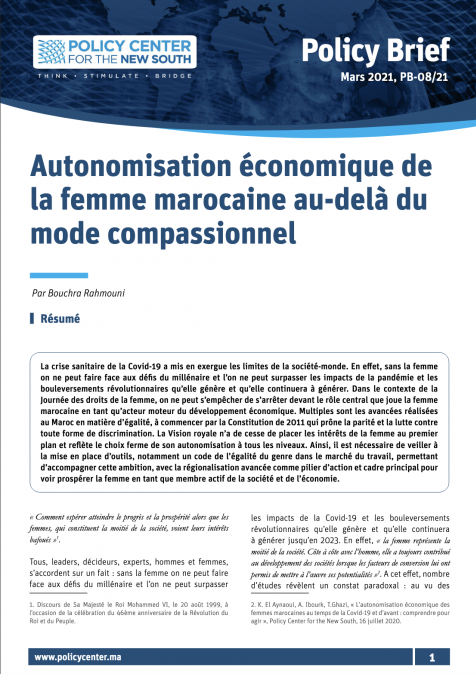Publications /
Opinion
Theodora Skeadas is a 2022 alumna of Atlantic Dialogues Emerging Leaders program. Learn more about her here.
During the 2019 Indian general elections, researchers studied how organizers used a network of WhatsApp groups to manipulate Twitter trends through coordinated mass postings. The researchers joined 600 WhatsApp groups and found evidence of 75 hashtag manipulation campaigns in the form of mobilization messages with lists of pre-written tweets. During the election period, these campaigns produced hundreds of nationwide Twitter trends with the goal of influencing outcomes through persistent targeting of individuals and groups with incendiary narratives. Unfortunately, that’s not all they impacted.
Networked harassment is the use of digital communication networks to deliberately and persistently target individuals or groups with abusive, threatening, and harmful behavior. It typically occurs on social media platforms including Facebook and Twitter, online forums such as Reddit and 4chan, messaging apps including WhatsApp and Telegram, and any other online spaces where personal information can be accessed through peer-to-peer communication.
Women are most often the targets of networked harassment campaigns. Online violence against women in politics (OVAW-P) has become detrimental to the experience of women in public facing positions. According to a joint study by Princeton University and The Anti-Defamation League, female officials are 3.4 times more likely to be harassed than men, and the nature of the harassment is also gendered and more complex for women of color. The problem is magnified for women and minorities who are deemed to have transgressed social norms.
In June 2023 at RightsCon, the world’s largest digital rights conference, Disarm Foundation in partnership with Alliance4Europe facilitated a workshop on networked harassment, at which the underlying dynamics of targeted abuse in digital spaces were discussed. We highlighted a combination of human, technical, and ethical considerations in co-designing solutions for mitigating online aggression.
The group raised several issues highlighting the importance of exploring the prevalence of motivated harassment campaigns in different cultural and ideological contexts, digital and media literacy programs, training around data security best practices, and advancing policies around the impact of cross- network attacks.
Most attacks aim to intimidate their target through various forms of explicit messaging, derogatory discourse, the sharing of private or sensitive information (without consent), spreading false rumors, doxing, stalking, threats of physical harm or death, and/or coordinated defamation or alienation within a network, among other tactics.
There is no specific sequence one might follow to address the complexities of online harassment because campaigns usually differ in their motivations, techniques, and impacts. We do this while evaluating behavioral tactics, techniques, and procedures using the Disarm Framework, to help decision makers better understand networked movement patterns and subsequent mitigation strategies to stop the spread. The combined sequence of technical and behavioral tactics is viewable here.
Interventions and Solutions
In 2022, the National Democratic Institute published a report on how to ‘End Online Violence Against Women in Politics’. In the report, the researchers outlined 26 interventions that can be taken by technology platforms, government decision makers, and civil society to mitigate the threat of online violence towards women.
Based on these interventions, attendees at our workshop discussed:
1- Technical perspectives related to online harassment: Facilitated by Hallie Stern, this conversation explored the underlying algorithms, data-collection methods, machine-learning models, and technological infrastructure that contribute to online harassment. They also delved into the technical complexities, limitations, biases, and potential improvements related to online platforms and algorithms.
2- Ethical and societal perspective: Facilitated by Theodora Skeadas, this conversation analyzed the broader societal impact, power dynamics, social norms, and cultural contexts surrounding women in politics. They also examined questions related to privacy, consent, free speech, online behavior, and the responsibility of platforms and policymakers in addressing gender-driven challenges.
3- Human and personal perspective: Facilitated by Maia Mazurkiewicz, this conversation emphasized the human experiences and personal dimensions of networked harassment and algorithmic gender disparities. Here, attendees personally impacted by online harassment shared personal stories, emotions, and lived experiences related to these issues. They also examined the psychological, emotional, and social impact on individuals and communities, highlighting the need for empathy, support, and empowerment in addressing these challenges.
Taken together, these group conversations yielded the following recommended solutions to networked harassment:
1- Advancing safety by design, a framework that puts accountability, user empowerment, and transparency at the center of technology product and policy decisions. As noted in Orbits - a global field guide to advance intersectional, survivor-centred, and trauma informed interventions to technology-facilitated gender-based violence:
- “We must make brave and bold choices that prioritize the physical and emotional safety of people, especially if they have been denied this safety at many points in their lives. Whether it is the interface of our platform or the service blueprint, safety by design should be the default. Safety by design should be a prerequisite for any product but it becomes critical when designing for an audience that has been denied safety, such as survivors of technology-facilitated gender-based violence. Often, safety risks are minimized or deprioritised in technology design. We must embrace risk analysis as a way of ensuring more people’s use of our products, which will improve future outcomes for all.”
2- Bringing together diverse stakeholders in shared education campaigns. As noted in Orbits - a global field guide to advance intersectional, survivor-centred, and trauma informed interventions to technology-facilitated gender-based violence:
- “The lack of diversity within tech companies, especially at the senior level, presents major barriers to addressing tech abuse, and implementing the intersectional, survivor-centered, and trauma-informed approach that is required. To remedy this, we must not only diversify these organizations and decision-making teams, but also transform the organizational cultures, management structures, and HR practices that have dominated until now. It is not enough to give ‘a seat at the table’ to people from more diverse backgrounds, communities, and identities - we must rebuild the tables and the rooms where decisions are made so they can genuinely hold multiple perspectives and facilitate decisions that reflect them.”
3- Building behavioral signals that consider local context. As noted in Alternative Realities, Alternative Internets - African Feminist Research for a Feminist Internet:
- “Digital security resources should be adapted to local contexts and languages and mainstreamed in educational curricula.”
4- Fostering public training and workshops about online discourse. For example, from the Tech Policy Design Lab on online gender-based violence, participants in the policy design workshops produced 11 prototypes that can help create safer online experiences for women and tackle OGBV.
5- Encouraging women to participate in political processes to establish more prevalent social norms. As noted in Gender-Based Hate Speech in Nigeria:
- “Governments should promote awareness and recognition of the importance of women’s participation in the political process, at the community, local, national and international levels.”
Ultimately, the growing issue of networked harassment complicates the issue of online violence against women, especially those in politics. Targeted interventions can help address this issue and promote a better user experience for women users of technology platforms.
*Theodora Skeadas (NDI consultant, ADEL 2022) and Hallie Stern (Disarm Foundation consultant).





